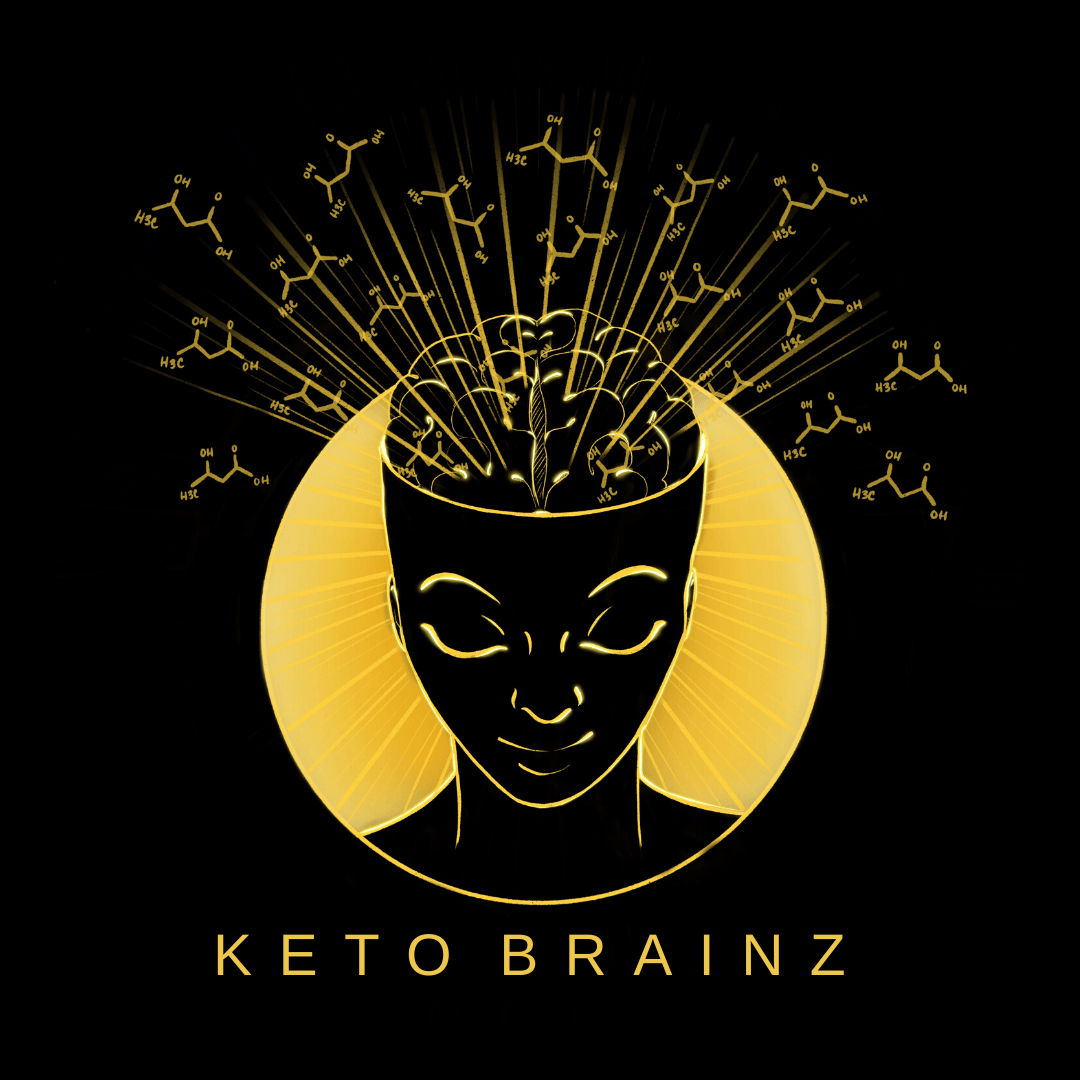
Today’s fast paced world is… weird, and as a result, the search for peace and clarity amidst the chaos has led many to explore supplements for anxiety.
Thankfully certain nootropics can do just that. These cognitive enhancers are now gaining popularity among the general public for their potential to soothe the mind and improve focus without the side effects typically associated with traditional medications.
But what exactly are nootropics, and how can they help with anxiety? In this post, we will cover generally what nootropics are and how they may fit into the category of anxiolytics, demystify their usage for mental wellness, and explore how these powerful supplements can potentially transform your day-to-day. Whether you're a skeptic or a curious mind seeking information, I hope you enjoy some ideas into the world of nootropics for anxiety.
What Are Nootropics?

Nootropics, often referred to as "smart drugs" or cognitive enhancers, are substances that can improve mental performance in healthy people. They range from well-known stimulants like caffeine to dietary supplements such as Alpha-GPC and herbal products like Ginkgo Biloba. Nootropics are prized for their ability to enhance memory, focus, creativity, intelligence, and motivation. They operate through various mechanisms, such as increasing the supply of neurochemicals within the brain, improving the brain's oxygen supply, or stimulating nerve growth. Admittedly, the nootropic supplement category is incredibly broad. So you may see things that you did not consider as being nootropics below, but first lets take a look into what anxiety is and how it may occur. If you would like to learn more about nootropics, I wrote about them here!
What Is Anxiety And How Does It Manifest?

Anxiety is a state that manifests as a persistent feeling of unease, worry, or fear. It's more than just temporary stress or nervousness; anxiety can seep into every aspect of life, affecting our decisions, interactions, and overall sense of well-being. While it's a natural human response designed to alert us to potential threats, anxiety becomes a concern when it's constant, overwhelming, and disproportionate to actual events. It can range from general anxiety felt on a daily basis to more acute forms, such as panic attacks or specific phobias. Understanding anxiety is the first step towards managing it, and recognizing that it's not merely a personal failing but a widespread condition that can be addressed with various strategies and treatments.
Anxiety can be caused by a variety of factors, which can be interrelated, including biological, psychological, and environmental reasons. Here's a breakdown of some of the causes:
- Genetic Factors: Anxiety can run in families, suggesting that a combination of genes and environmental stresses can produce disorders.
- Brain Chemistry: Misalignments in the levels of neurotransmitters (chemical messengers in the brain) such as serotonin, dopamine, and gamma-aminobutyric acid (GABA) can influence feelings of anxiety.
- Life Events: Traumatic or stressful events such as abuse, the death of a loved one, divorce, changing jobs or schools, may trigger anxiety. Ongoing stress, such as occupational pressures, financial stress, or chronic physical illness, can also contribute to an anxiety disorder.
- Personality Factors: Certain personality types are more prone to anxiety disorders than others.
- Developmental Factors: Experiences in childhood, such as poor attachment styles or parental neglect, can influence the likelihood of developing anxiety disorders.
- Medical Factors: Some physical health conditions, such as thyroid problems, diabetes, or heart disease, can produce symptoms similar to anxiety, or exacerbate existing anxiety.
- Substance Use: The use of or withdrawal from addictive substances, including alcohol, caffeine, nicotine, illegal drugs, and even pharmaceutical drugs can trigger anxiety symptoms.
Can Nootropics Be Used For Anxiety?

Nootropic stacks for anxiety are combinations of nootropics and supplements specifically designed to help reduce anxiety, improve mood, and enhance overall mental function. The idea behind stacking is that the combined effects of different substances can produce a more significant effect than any single substance alone, potentially with synergistic benefits.
Which Nootropics are the Best for Anxiety?
When it comes to using Nootropics for anxiety, a few options come to mind, some of which you will likely recognize from other posts. They are:
- L-Theanine: An amino acid found in green tea, L-theanine is known for its ability to promote relaxation without drowsiness. It's often used in nootropic stacks to mitigate the jitteriness associated with caffeine and to induce a calm, focused state of mind. This is generally my first go to when it comes to anxiety and is generally well tolerated and safe. This is one of my absolute favorites!
- Ashwagandha: An adaptogen herb used in Ayurvedic medicine, ashwagandha is reputed to reduce stress and anxiety, enhance vitality, and improve cognitive function. When I think of ashwagandha, I tend to think of it as a cortisol modulator, and while cortisol is certainly not a bad hormone (even though we think of it as the stress hormone), chronically high levels are not generally ideal. Ashwagandha supplementation has been shown to cause reductions in morning cortisol, which may help with alleviating anxiety.
- Magnesium: A vital mineral that plays a role in over 300 enzymatic reactions in the body, magnesium can help manage stress (physically and mentally), reduce anxiety, and promote better sleep, which in turn can improve cognitive function. Now not all magnesium supplements are created equally, and some are not tolerated well or utilized well. Some of my favorites for anxiety however include magnesium glycinate (sometimes called bisglycinate), and magnesium l-threonate.
- Bacopa Monnieri: An herb traditionally used in Ayurvedic medicine, Bacopa Monnieri has been reported to improve memory and reduce anxiety, making it a common ingredient in nootropic stacks. It is not something that I have tried personally for a long period of time, however, it is one of the more popular ones for sure.
- Rhodiola Rosea: Another adaptogen, Rhodiola Rosea is believed to help the body adapt to and resist physical, chemical, and environmental stress, thereby reducing anxiety and fatigue. While clinical data on its use for anxiety is limited, it does have a well-established use in traditional medicinal systems for enhancing mental health.
- GABA: Gamma-Aminobutyric Acid (GABA) is an inhibitory neurotransmitter in the brain, meaning it can produce a calming effect. Supplementing with GABA is thought to help alleviate anxiety. Something important to state about GABA however, is that oral GABA supplement effectiveness is generally quite low. However, if you are looking to increase GABA, supplements like lemon balm, ashwagandha, l-theanine, and valerian root are available.
- Omega-3 Fatty Acids: Found in fish oil and flaxseed (with fish oil being much more effective for anxiety), omega-3 fatty acids are essential for brain health and are believed to have anti-anxiety effects. When I think of Omega-3’s for anxiety, I tend to gravitate towards higher eicosapentaenoic acid (EPA).
- CBD: Cannabidiol, or CBD, is a compound found in cannabis and hemp that has been found to reduce symptoms of anxiety in some people without inducing the psychoactive effects associated with THC.
Surely as this topic gains more attention, more options will pop up! This field is still relatively new.
As we close this exploration into the realm of nootropics for anxiety, it's clear that while the modern world presents myriad stressors, the field of cognitive enhancement offers new avenues for tranquility and mental clarity. Through understanding the nature of anxiety and how it impacts our lives, we have uncovered the potential of nootropics to provide relief and support mental well-being. From the calming waves of L-Theanine to the stress-modulating powers of Ashwagandha and the stabilizing presence of Magnesium, each nootropic presents a unique key to unlocking a more serene state of mind. However, it's essential to remember that these substances are tools, not cures. Proper use, often in combination with lifestyle changes and professional guidance, can lead to significant improvements in anxiety levels and overall cognitive function.
As we venture forth, may this knowledge serve as a beacon of hope, guiding us toward a more balanced and focused existence in an often turbulent world. Whether you're embarking on this journey out of curiosity or necessity, remember that the path to mental wellness is personal and unique. Here’s to finding the clarity and peace we all deserve!
Meet the Author:
David Battisti, MScN

I am a multi-sport athlete with a fascination with nutritional sciences. I was diagnosed with severe chronic asthma at the age of 5, and over the years discovered how diet could be used to alleviate my symptoms. While I am pretty diet agnostic, I have found ways that work for me, and love to help people discover ways they can do the same! I also own a small business called Alacrity Nutrition, which seeks to help people discover what gets them excited about health. Check out my website at: Alacritynutrition.com


